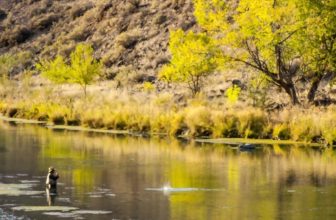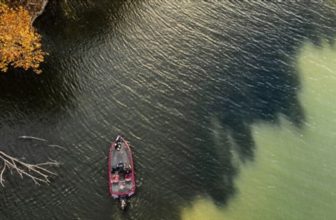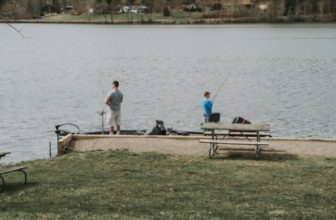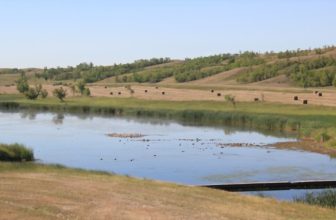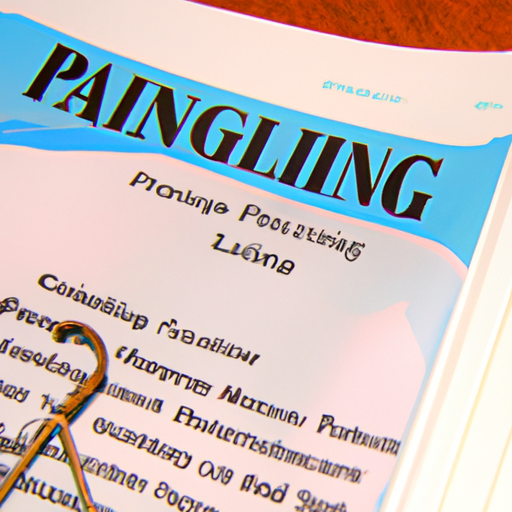
Do you want to go fishing in Pennsylvania but aren’t sure where to start? Gathering the necessary materials and understanding the fishing license process can be confusing, but this comprehensive guide will help you become a licensed angler in no time.
Step 1: Determine which Permit is Right for You
For starters, be aware that you cannot simply purchase an all-encompassing fishing license; Pennsylvania instead splits their licenses into four categories. The four license types include:
- Resident Annual Fishing License: Appropriate for residents of the state and is valid for the calendar year
- Resident Senior Fishing License: Only available for residents aged 65 and up; also valid for one calendar year
- Non-Resident Fishing License: Available for anyone from outside of Pennsylvania and is also valid for one calendar year
- Period Fishing License: Perfect for visitors that are only in Pennsylvania for a little while; valid for a set period of time, ranging from one day to one year
Step 2: Obtain a License
Once you ascertain which license is right for you, you can acquire it in one of two ways:
- Online: A simple and fast way to get a license. Once you create an account, you can browse the various types of licenses and pay with a credit or debit card. You are free to print out your license or simply show your proof of purchase electronically
- In Person: You can purchase your license in person at a participating destination, such as an outdoors or sporting goods store. You will still need your proof of residency when making the purchase. Cash, checks or major credit cards are all accepted forms of payment
Step 3: Comply with the Rules and Regulations
Finally, you must abide by the rules and regulations. Be sure to read up on any size and creel limits, times and season dates, and other local restrictions that could affect the type of fish you are allowed to catch.
By following these steps, you will be a licensed angler in Pennsylvania in no time! Navigating the fishing license process can be intimidating, but with a comprehensive guide like this, fishing will be a breeze. Have fun, be safe, and happy fishing!
What is the cost of a fishing license in Pennsylvania?
The cost of an annual fishing license in Pennsylvania varies based on age and residency.
For Pennsylvania residents, a fishing license costs $22.90 for adults (ages 17-64) and $9.90 for youths (ages 16 and under). For non-residents, a fishing license costs $50.90 for adults (ages 17-64) and $26.90 for youths (ages 16 and under).
What documents do I need to get a fishing license in Pennsylvania?
In Pennsylvania, you need to provide a valid form of identification and proof of residency to purchase a fishing license. You will also need to complete an application with basic information such as address, date of birth, gender, and driver’s license or state ID number. You may also be required to provide additional information pertaining to the type of license you are purchasing. Additionally, individuals under 16 are only required to provide a social security number.
What age do I have to be to get a fishing license in Pennsylvania?
In Pennsylvania, the minimum age to purchase a fishing license is 16 years old. Individuals 16 and under are not required to purchase a fishing license, but they must abide by all other laws, regulations, and rules pertaining to fishing.
At what age do I need to be to purchase a fishing license in Pennsylvania?
In Pennsylvania, you must be at least 16 years of age to purchase a fishing license.
At what type of license do I need to purchase to fish in Pennsylvania?
A fishing license is required of all persons aged 16 and up who fish in the tidal and nontidal waters of the Commonwealth. Anglers can purchase the appropriate license online or from a license issuing agent. There are several types of licenses available for purchase, including a 1-day, 7-day, 1-year, 3-year and 5-year license. The type of license you will need depends on the type of fishing you plan to do.
What states require a fishing license?
The following states require a fishing license: Alabama, Alaska, Arizona, Arkansas, California, Colorado, Connecticut, Delaware, Florida, Georgia, Hawaii, Idaho, Illinois, Indiana, Iowa, Kansas, Kentucky, Louisiana, Maine, Maryland, Massachusetts, Michigan, Minnesota, Mississippi, Missouri, Montana, Nebraska, Nevada, New Hampshire, New Jersey, New Mexico, New York, North Carolina, North Dakota, Ohio, Oklahoma, Oregon, Pennsylvania, Rhode Island, South Carolina, South Dakota, Tennessee, Texas, Utah, Vermont, Virginia, Washington, West Virginia, Wisconsin, and Wyoming.
What states do not require a fishing license?
Alaska, Hawaii, and Connecticut are states that do not require a fishing license.
What states offer free fishing?
The following states and territories offer free fishing days in 2021: Alabama, Alaska, Arizona, Connecticut, Delaware, Hawaii, Idaho, Illinois, Iowa, Kansas, Maine, Massachusetts, Michigan, Minnesota, Montana, Nebraska, Nevada, New Hampshire, New Jersey, New Mexico, New York, North Carolina, North Dakota, Ohio, Oklahoma, Oregon, Pennsylvania, Rhode Island, South Dakota, Tennessee, Utah, Vermont, Virgin Islands, Virginia, Washington, West Virginia, Wisconsin, Wyoming.
What states offer year-round free fishing?
Alabama, Arkansas, California, Colorado, Idaho, Kentucky, Nebraska, New York, South Dakota and Wyoming are among the states that offer year-round free fishing.
What states offer free fishing days?
Free fishing days are offered in most states, though the rules and restrictions vary. Popular states that offer free fishing days include Arizona, California, Colorado, Florida, Connecticut, Georgia, Idaho, Illinois, Indiana, Kansas, Maine, Massachusetts, Michigan, Minnesota, Nebraska, New Hampshire, New Jersey, New Mexico, New York, North Carolina, Ohio, Oklahoma, Pennsylvania, Rhode Island, South Carolina, Tennessee, Texas, Vermont, Virginia, Washington, Wisconsin, and Wyoming.



